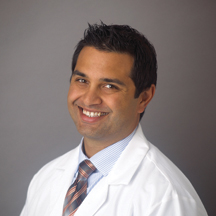Cholesterol Control Can Be Key To A Healthy Heart: C3 Lipid Clinic Can Help
 By Rajesh Reddy, DO
By Rajesh Reddy, DOHeart attacks and heart disease claim countless lives each year, in fact; more than one million Americans will have a heart attack this year – and heart disease is still the leading cause of death for women in the United States.
Keeping the heart and blood healthy go hand-in-hand – the level of cholesterol in the blood is a major factor in your heart health. Cholesterol is a naturally occurring substance in the blood that is necessary for producing cell membranes and certain hormones, and supporting other body functions. Its bad reputation comes from the health problems that occur when there is too much cholesterol, also known as lipids, in the blood.
When levels are elevated, cholesterol can enter the walls of any artery in your body. This will lead to narrowing of the diameter of the artery which places you at risk for chronic narrowing of a blood vessel or abrupt rupture of a cholesterol plaque leading to a heart attack or stroke.
Brandywine Valley Cardiology now offers an advanced multi-specialty lipid clinic which includes nutritionists, nurses, and cardiologists to help manage your cholesterol. The clinic, known as C3: Cholesterol Control Clinic, specializes in high risk/complex lipid disorders, patients with family histories of heart disease and stroke, and statin intolerant patients. Listed below are some of the diagnostic treatment programs offered by the clinic.
Lifestyle Adjustments
Clinical studies have shown that dietary changes and exercise can reduce total cholesterol in women by up to 18mg/dl. That is why C3 also offers nutritional counseling by a registered dietician as part of your treatment plan.
Your heart disease risk is mostly in your hands – regardless of family history – and several lifestyle and nutritional changes should be maintained for a healthy heart:
Don’t smoke, and limit alcohol to a moderate amount (no more than two drinks per day for men and one drink for women).
Eat lean proteins, whole grains, fruits, and vegetables, and limit trans and saturated fats, salt, and sugar.
Incorporate aerobic exercise and strength training into your daily routine.
Lose any excess weight.
Control any health conditions that increase heart disease risk, such as high blood pressure, high cholesterol, and diabetes.
Diagnostic Testing and Risk Assessment
In addition to standard risk assessment tools including History, Physical Exam and Standard Lipid Assessment, we also utilize advanced testing when warranted including
C-Reactive Protein: This is a measure of inflammation in the body which studies have shown to predict cardiovascular risk.
Thyroid Assessment: Your thyroid can cause abnormalities in blood lipid levels.
Vitamin Level Assessment: Low levels of Vitamin D have been shown in some studies to predict intolerance of certain types of cholesterol medication.
Coronary Calcium Scoring: The presence and extent of coronary calcium has been directly linked to the risk of future vascular events.
Medication Treatment
But sometimes Dietary Changes and advanced assessment are not enough and when drug therapy is warranted, we will provide evidence base medication therapy tailored to your particular needs.
Medication Side Effects
Sometimes dietary changes and advanced assessment are not enough and when drug therapy is warranted, we will provide evidence base medication therapy tailored to your particular needs.
Clinical trials have suggested that the rate of common muscle pains, known as myalgias, range from 5 to 10% in the most commonly prescribed cholesterol treatment medications.
C3 works with patients to uncover the reasons for side effects, including food interactions with your medication, drug to drug interaction or even starting a new work out program. There may also be alternatives to medication. The multi-specialty team at the clinic will work with you to find the best option for you specific needs.
The team at C3 will help guide you through any necessary changes you should make, and help you learn how to make the right choices in your daily life to help manage your high cholesterol.
Dr. Rajesh Reddy is a board certified cardiologist with Brandywine Valley Cardiology (BVC). Dr. Reddy is the Director of the Lipid Clinic, brings an advanced understanding of lipid medicine to BVC and possesses experience in treating advanced lipid disorders. For more information, please visit BrandywineHeartCare.com


